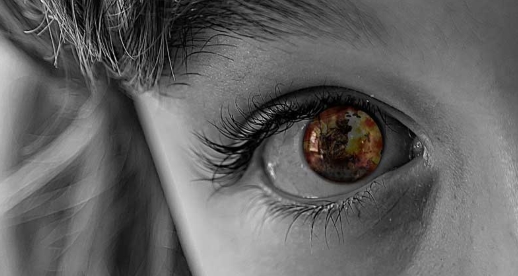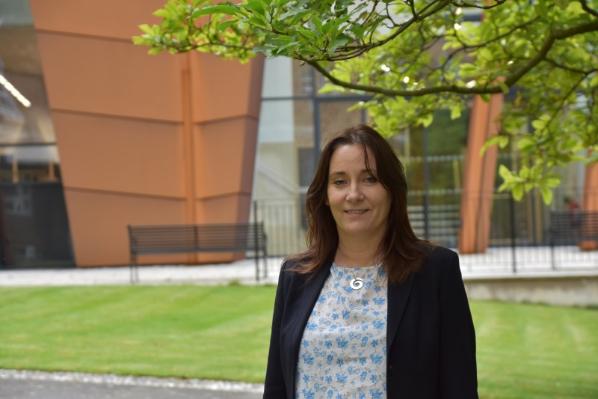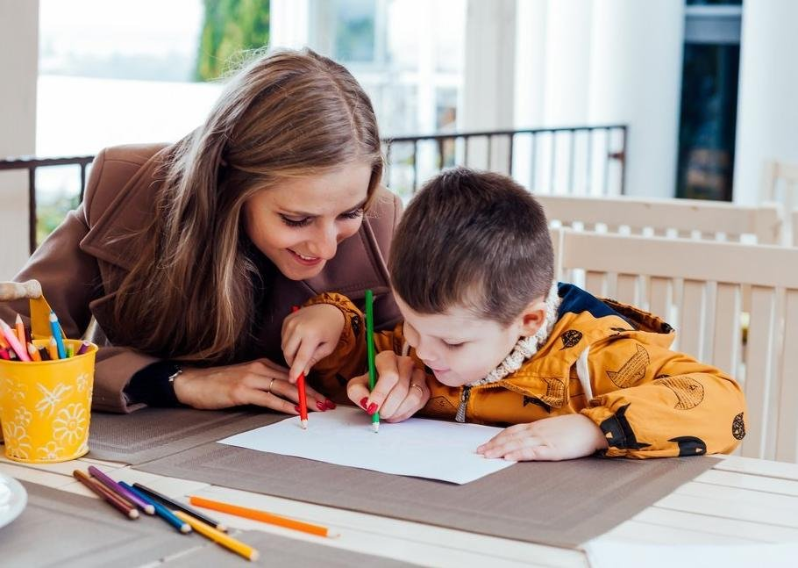NICAS
Northern Ireland Childhood Adversity Study
It is now well established globally that adverse childhood experiences are a significant public health concern. Our recent work estimates the occurrence of adverse childhood experiences (ACEs) such as abuse, neglect, household dysfunction, peer and community violence, to be high in young adults in Northern Ireland. Over 26% experience at least one ACE, and the most common adverse experience, reported by 34% of the sample, was growing up mental illness in the family. One quarter of young people reported growing up with four or more ACEs, and these young people were found to be at significantly increased risk of engaging in health harming behaviours, psychopathology and lower educational attainment.
Dr Teresa Rushe is PI of the Northern Ireland Childhood Adversity Study (NICAS) and along with Dr Tara O Neill (Research Fellow) conducts research into the psychological outcomes of growing up in adversity, as well as the mediators and moderators of outcome in high risk populations in Northern Ireland.
The Northern Ireland Childhood Adversity Study (NICAS) is a case-control study utilising both retrospective accounts and current neuropsychological functioning to examine childhood predictors, mediators and moderators of outcome and investigate the relative contributions of educational/occupational, behavioural and psychological variables in the relationship. The participants consist of "high-risk" young adults aged 18-25 from communities across Northern Ireland, recruited via our local collaborators; NEW LIFE Counselling, Youth Action and St Peters Immaculata Youth Centre. Participants in the control sample will be matched on demograhics such as age, gender, religion and super output area (SOA) in order to portray the diversity of childhood adversity in Northern Ireland. This framework has the capacity to ensure a broad age range, an up-to-date contemporary outlook, representation across geographical locations, and various configurations of adjustment are captured. Thus, our study has the potential to provide methodological and conceptual advances within this important developmental period.
Further, evidence from neuroscience, molecular biology, genomics, and epigenetics indicate that early childhood experiences ‘get under the skin’ and thereby their influence can extend over a lifetime. Our research will also examine biological measures including, cortisol (as a measure of stress reactivity), telomere length (as an indicator of cellular aging) and DNA (to assess specific hypotheses concerning epigenetic changes.
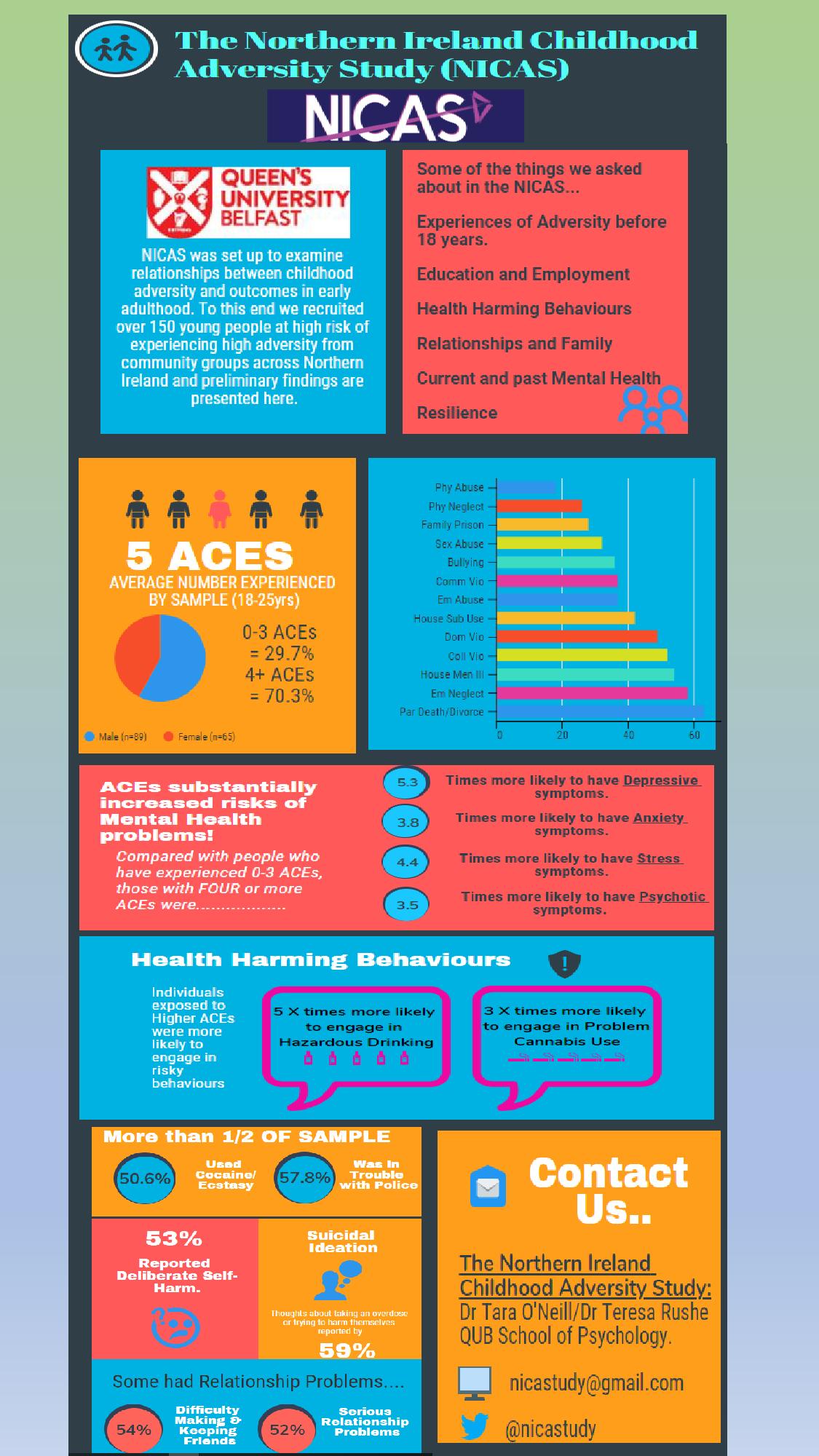

My work is interdisciplinary and focuses on personality, psychopathology and achievement across contexts. I am particularly interested in the dark side of human personality including Machiavellianism, Narcissism, Psychopathy and Sadism. Narcissism is of particular interest to my work with research conducted in our lab to suggest that certain aspects of narcissism may act as a bridge between the prosocial and toxic side of human personality.
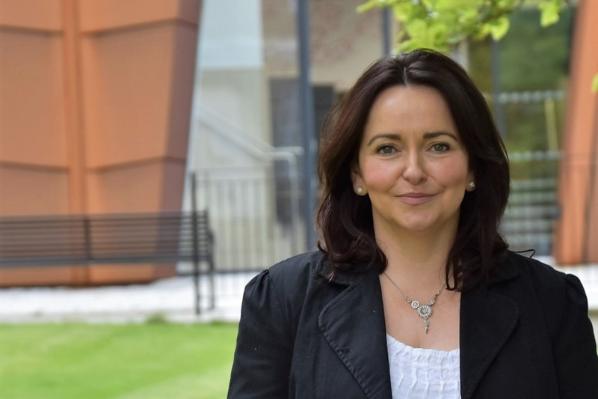
My research focuses on parenting and childhood adversity. I am particularly interested in how adversity affects parenting and familial processes, and the impact on parent, child and family outcomes. I also have significant experience in the design and evaluation of interventions aimed at improving outcomes for vulnerable parents and children. Recent/current projects include investigating the impact of incarceration on parental psychosocial wellbeing and parenting attitudes/behaviours, and an evaluation of a parenting programme for fathers.

My research expertise covers areas of psychological trauma, adversity, mental health, drugs and alcohol use. I have extensive experience of statistical methodology and its application. My PhD research focused on early environmental influences in psychosis specifically the psychological sequelae of female sexual victimisation. My current focus is on the links between traumatic experiences and psychopathology, transgenerational trauma and symptomology and substance misuse as coping mechanisms.

